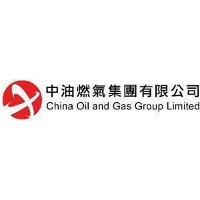Business Description:
Yamada Green Resources Limited, incorporated in Singapore, operates primarily in the property investment and leasing business, with a significant focus on office and logistics properties in China and Singapore. The company has made substantial investments in these regions, and its rental income from these properties has been a key contributor to the company’s financial stability. Historically, Yamada was involved in the cultivation and sale of edible fungi and processed food products, but it ceased this segment by June 2024 to focus entirely on property leasing.
Industry Context:
Yamada operates within the property investment sector, which has been under pressure due to the broader economic challenges in China. The Chinese property market has seen weakness, with subdued demand and a general slowdown in leasing activities. Yamada’s competitors in the property investment space are local and regional players in the PRC and Singapore, focusing on both office and logistics properties. Despite the difficult market conditions, Yamada has successfully expanded its property portfolio and income streams through strategic leasing and rental agreements.
Business Model:
Yamada has shifted its business model to focus entirely on property leasing, following the cessation of its processed food business, which had been suffering from declining sales and profitability. The company’s main revenue stream now comes from rental income, which has seen a significant increase, growing by 44.6% to RMB 16 million in FY2024. The company aims to optimize tenant structures, maintain competitive rental rates, and explore new leasing opportunities, particularly in overseas markets like Japan, where it recently incorporated a subsidiary. This strategic shift leverages Yamada’s existing property assets, but it also exposes the company to the inherent risks of the property market.
Financial Analysis:
1. Income Statement:
- Revenue: Total revenue from investment properties grew by 44.6% from RMB 11 million to RMB 16 million.
- Gross Profit: Gross profit rose to RMB 10.9 million, up from RMB 7.5 million, with the gross profit margin improving slightly to 68.5%.
- Net Loss: Despite the rise in revenue, Yamada reported a net loss of RMB 32.5 million for FY2024, primarily due to a significant loss from changes in the fair value of investment properties, amounting to RMB 42 million.
2. Balance Sheet:
- Non-Current Assets: These decreased by 12.2% to RMB 261.1 million due to losses from the fair value changes in properties and depreciation.
- Current Liabilities: These fell by 25.4% to RMB 7.5 million, mainly due to lower trade payables and tax liabilities.
- Cash Position: Cash and cash equivalents stood at RMB 22.8 million as of June 30, 2024.
3. Cash Flow Statement:
- Operating Cash Flow: Operating cash flow improved marginally to RMB 9.8 million due to stronger rental income.
- Investing Activities: Yamada spent RMB 8.7 million on property refurbishments and improvements.
- Financing Activities: The company used RMB 6.3 million for the repayment of loans, purchase of treasury shares, and dividend payments.
Key Points for Investor Action:
- Shift in Focus: Yamada has completely exited its processed food segment, which had been a loss-making venture, to focus solely on its property leasing operations. This shift may provide more stable income, but it increases exposure to the cyclical property market.
- Strong Rental Growth: Despite market challenges, Yamada’s rental income grew significantly, supported by higher rental rates and increased lettable space. This suggests resilience in the face of weak demand.
- Fair Value Losses: The RMB 42 million fair value loss on properties significantly impacted profitability, leading to an overall net loss for FY2024. This raises concerns about the sustainability of property valuations.
- Improved Gross Margins: The gross profit margin increased modestly, showing operational efficiency in managing its property portfolio.
- Risk of Economic Slowdown: Yamada’s exposure to the Chinese economy and property market poses a risk, particularly if the economic slowdown continues.
Summary of Findings:
Yamada Green Resources has shifted its business model entirely to property leasing, which has generated strong rental growth. However, significant fair value losses and macroeconomic uncertainties in China’s property market pose risks. While the company has taken steps to stabilize its operations, such as focusing on high-quality tenants and exploring overseas markets, the volatility in property values remains a critical concern.
Recommendations:
- For Current Investors: Hold. The company has shown resilience through rental income growth, but the significant fair value loss suggests caution. Investors should monitor property market trends closely.
- For Potential Investors: Wait. The risks related to property valuations and the broader economic outlook suggest it may be prudent to wait for stabilization in the market before making an investment decision.
Disclaimer:
This recommendation is based on the company’s financial performance and current market conditions as reflected in the annual report. Investors should consider their own financial situation and consult with a professional advisor before making any investment decisions.
Report Date: October 14, 2024 (Reporting for Financial Year ended June 30, 2024).




